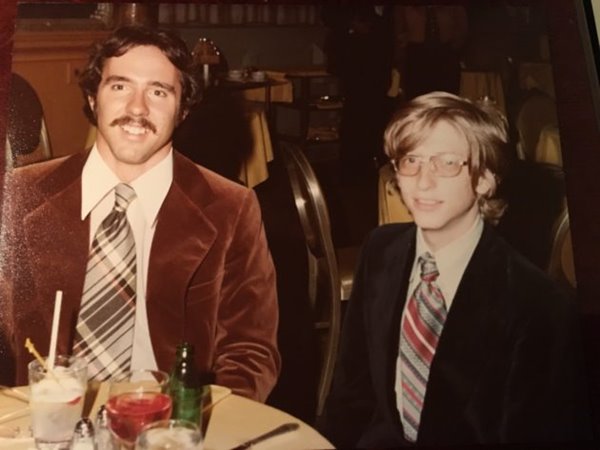By Justin H.
In 1969, at a time when computers and software were tucked away in labs and government buildings (and scientists at Bell Labs were busy working on the operating system that would become Unix), a brilliant 16-year old high school student named Ric Weiland was offered the remarkable sum of $5,000 ($33,000 today) to work on developing computer software as a summer job. Weiland nurtured an interest in computers and programming while at his school, Lakeside Preparatory, in Seattle, WA and would start the Lakeside Programming Group along with the early founders of Microsoft. He used the resources provided by his school and this group to assist in the creation of payroll and scheduling programs.
Weiland would start an undergraduate degree at Stanford University but postpone his final year to go to Albuquerque, New Mexico and become one of the first employees at Microsoft in 1975. As lead programmer, he would work on Microsoft’s BASIC and COBOL systems. Moving with the company to Seattle in 1979, he would go on to be the project lead for Microsoft Works.

In 1988, at the age of 35, Ric Weiland decided to focus his energies on philanthropy. According to the Weiland Health Initiative at Stanford, “Mr. Weiland gave away $21.5 million during his life to a variety of causes. As an out gay man who cared deeply about the well-being of LGBT people, Mr. Weiland laid out meticulous plans in his will for distributing nearly $68 million among 11 organizations to respond to new crises and opportunities in the fight for LGBT rights.
Ten of these beneficiaries received their money gradually over a decade and Weiland’s total charitable donations after his death would total nearly $170 million.” Mr. Weiland’s stake in these causes went beyond that of a generous donor. An article by the Seattle Met points out that “though he often seemed shy and reticent, in 1999 he stood up before 2,000 assembled shareholders of General Electric and challenged them to repudiate discrimination based on sexual orientation… and the next year, the company did just that.”
Weiland’s philanthropy would extend beyond LGBT causes to groups like the United Way of King County, the SierraClub, Fred Hutchinson Cancer Center, the Environmental Defense Fund, and the National Wildlife Federation among others. Although he sadly would not live to see how this philanthropy would accelerate transformational changes in our society, he left behind a legacy as a champion of environmental protections, medical research, and human rights.